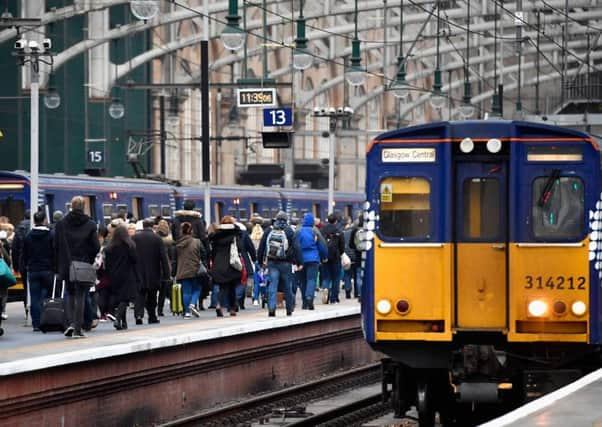Leader comment: Time to end the scourge of trains that skip stops


Suddenly a journey can be considerably extended with appointments missed and plans thrown into chaos as a train whistles through passengers’ intended destination and leaves others standing on the platform, feeling helpless, let down, even betrayed.
Was their ticket not a contract, a promise to be honoured?
We have highlighted the extent of the problem in recent weeks, reporting earlier this month that stop skipping had increased by 77 per cent since last August, with a total of 27 trains a day missing out intermediate stations.
Advertisement
Hide AdAdvertisement
Hide AdScotland’s transport minister Humza Yousaf rightly castigated rail firms and he was joined in a growing chorus of disapproval by politicians from across the spectrum; Conservative transport spokesman Jamie Greene took ScotRail’s managing director Alex Hynes to task in person, while the Greens’ John Finnie warned of the “massive inconvenience” and of some passengers being left “stranded”. However, as The Scotsman reveals today, the rail industry appears to have taken the uproar seriously, agreeing a new 20-point plan to improve punctuality of services, thereby reducing or, ideally, removing the need to skip stations.
Under the plan, the practice will only be used “where the skip stop operation has been put in place before a service departs its origin” and only, we are told, as a “last resort”.
This is a rather vague aspiration but if stop skipping is essentially abolished in Scotland – apart from the occasional aberration – then most people would be satisfied. And rail travel in Scotland would be significantly improved.
We have seen similar plans before, so the travelling public are likely to remain sceptical.
A plan with an impressive-sounding 249 points was produced in 2016 but the early signs of improvements later petered out.
What appears certain is that the rail industry has finally got the message, loud and clear, that stop skipping is unacceptable.
But, as the Transport Focus group pointed out, “what passengers will be interested in is the results”. We await them with interest.